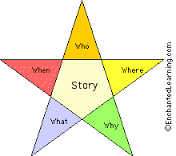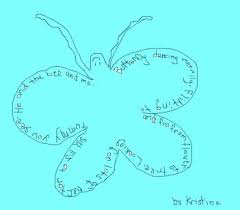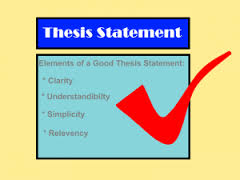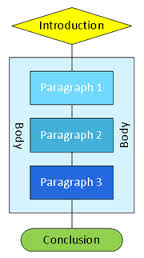Category Advanced

TOEFL Prep and Test-taking Strategies
Ecuador has used the TOEFL ibt to evaluate its English teachers, so PCVs here often present TOEFL training as part of their service projects. We have compiled TOEFL ibt Prep and Test-taking Strategies, a concise text to use with teachers and students who are planning to take the exam.

Graphic Organizers
Graphic organizers are valuable tools, especially for reading lessons, which often require that students comprehend abstract concepts. Students use organizers to visualize concepts, manage information, and recall details. Designs are numerous, making them adaptable to your lessons!

Hybrid Listening Cloze and Info-gap Activity
English Teaching Forum recently published an article by Juan Pablo Zúñiga Vargas, an English teacher in Costa Rica. The submission outlines a hybrid activity that combines listening cloze with info-gap and integrates macro-and micro-language skills. Importantly, it allows students to play a more autonomous role in class.

Storybird – Artful Storytelling
New technology for classrooms abounds, but only occasionally does the “next thing” live up to its hype or truly help us teach better. Storybird, in my opinion, is a gorgeous tool for convincing your students that they really, really want to write in English or their native language. And if they want to write (and be […]

Minding Our Emotions
Pixar’s animated film Inside Out can be a teaching tool to help students understand and express their emotions. The website provides four marvelous activities for students of all ages and language levels. Playing the movie and doing one of the activities could be a multipart class or an English club session.

Picture-bound Travel Adventure
Intermediate- level EFL students work in groups to write and tell a creative, cohesive travel adventure based on the people and places they select from pictures.

Visual Verb Variations
Building vocabulary is fundamental to literacy and creative writing. This lesson gives teachers a visual model to help their students build verb alternatives and, thereby, refine their choice of alternative words so that the verb effectively describes their thoughts.

Anecdotes: Tell Your Story
Sharing anecdotes gives students a chance to speak and write confidently about topics of their choice.

Shape Poems: Writing Starting From Vocabulary and Visual Images
A shape poem is a type of poetry that describes an object and is shaped the same as the object the poem is describing. Here language and vocabulary acquisition and exploration are developed into visual and sound patterns as students create shape poems. What a fun way to bring writing into the classroom!

Unit Planning Templates
To facilitate her work and that of the 20 English teachers at her school, Ecuador PCV Yajaira Hernandez created two unit planning documents to ensure that her area met their lesson objectives and incorporated the four skills: reading, listening, speaking, and writing.

Having Fun Writing Poetry
Ecuador TEFL PCV Miranda Duncan shares her intriguing approach to making writing poetry fun using the cinquain poem as a model.

Online Vocabulary Sites
PCVs use a variety of methods to help teachers and students increase their vocabulary. Ecuadorian teachers and college students hoping to study abroad often must take English fluency tests that require knowledge of specific terms and words. These online sites offer words and phrases that frequently appear on the tests.

Campus Challenges
Ecuadorian TEFL PCVs, and probably those in other countries, assist students and teachers alike in preparing to take the TOEFL or Cambridge exams to study abroad or to meet government requirements for teaching positions. Understanding U. S. college campus environments and vocabulary and the situations new students face is crucial to score well on a […]

Student Storytellers
StoryCorps is a nonprofit organization that records and archives on its website a wide variety of stories told by the protagonists, their families, and friends. The sometimes touching, funny, riveting, or surprising tales offer our TEFL and ESL students and fellow teachers insight into U. S. culture. Moreover, the recordings and transcripts provide written and […]

Synthesizing
Synthesizing is another critical skill that our students and teachers need to master to do well on tests and in the classroom.

Paraphrasing and Summarizing
This post in our series on academic skills provides an overview of paraphasing and summarizing, along with a worksheet for teacher and student practice.

Skimming and Scanning
Skimming and scanning are critical academic skills that our students and teachers need to succeed throughout their careers. This post is another in our series on acquiring or honing academic skills.

Taking Notes
Many TEFL PCVs teach TOEFL and various Cambridge exam prep courses. Acquiring or honing academic skills such as taking notes is critical to the candidate’s success on exam day; moreover, these skills aid our students throughout their academic lives and often afterward on the job. This post is one of a series on academic skills.

Writing Series Part Four: Putting the Essay Together, Coherently
In Part Four, we offer Ecuador PCV Nikki Rowley’s step-by-step approach to writing an essay that answers the most common TOEFL independent essay question type, “Do you agree or disagree …?” Following that is a summary of points writers should take into account that will make any essay coherent and, therefore, persuasive.

Writing Series Part Three: Thesis Statements
In Part Three, we talk about the thesis statement, which is the most important sentence in the essay. The overview is adapted from a University of North Carolina Writing Lab handout. Examples of thesis statements, written by Ecuador PCV Nikki Rowley for the sample TOEFL independent essay questions shown in Part One mind maps, are provided […]

Writing Series Part Two: Independent Five-paragraph Essay Structure
This post address an essay’s structure, particularly the five-paragraph essay typically written for the TOEFL or IELTS independent essay.

Writing Series Part One: Brainstorming with Mind Maps
Peace Corps TEFL volunteers in Ecuador teach middle school, high school, and college students as well as local English teacher counterparts. Clearly, we teach writing at all language levels and have different goals based on the clients we serve. Since many current Ecuadorian English teachers and, also, college students who have received scholarships to study […]

Understanding the Speaker’s Attitude
The door to successful listening, especially understanding informal presentations and conversations, hangs on a number of hinges like utterances, useful expressions, idioms, pronunciation, tone of voice, facial expression and gestures (if video is available), and attitude. These components are often related and, as a whole, give listeners a clearer idea of what they have heard.

Vocabulary and Context Clues
ESL and EFL learners find many words they don’t understand in their reading. Rather than stopping to look up each new word in the dictionary, they can use context clues to guess the meaning of new vocabulary. This lesson, adapted from a Douglas Learning Centre handout, explains the clues students can use to ascertain meaning and become […]

Vocaroo in TEFL Setting
I imagine that a woeful lack of classroom technology is not unique to Ecuador public schools, so I’m delighted that a fellow PCV directed me to the free, online voice recorder app at Vocaroo.com. The service, which is easy to use and doesn’t require an account, login, or password, offers TEFL teachers and their students […]

Chance Encounters
This activity uses pictures of a wide range of people for whom students will write dialogues that might occur if the individuals had a chance meeting somewhere in the world. The lesson plan is adapted from one created by Allegra K. Troiano, Senior English Language Fellow (ELF), US Embassy.

Brainstorming: Part Two
Peace Corps Ecuador Volunteer Kate Barba produced this PowerPoint presentation and workshop for the University of Machala’s ESL teacher candidates. Prewriting is covered in more depth than in the previously posted “Brainstorming” PowerPoint as these prospective teachers have higher English fluency. Volunteers who are teaching college students or advanced speakers will find this resources useful.

Chicago Food Tour Cultural Exchange
We love food, especially food that stimulates and surprises! EFL students and teachers are usually surprised to learn that the US population comprises every nationality on Earth. Realizing how diverse our country is–waves of immigration have been our history–many EFL learners understand that our language varies across the nation, not to mention internationally. This lesson […]

Prewriting Brainstorming
Teaching the writing of academic English to Ecuadorian college students who wished to study abroad taught me that prewriting is critical to all successful writing. My favorite prewriting technique is brainstorming and creating cluster or bubble maps. This PowerPoint explains the why and how.


